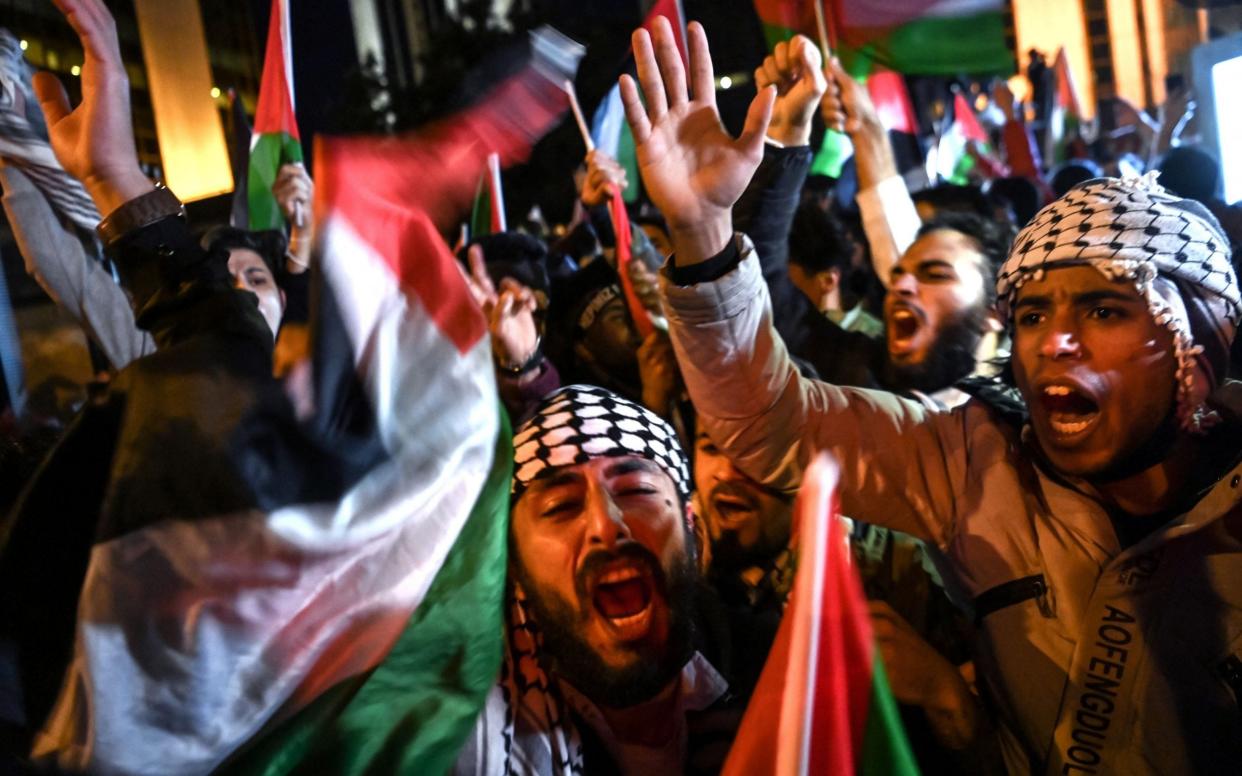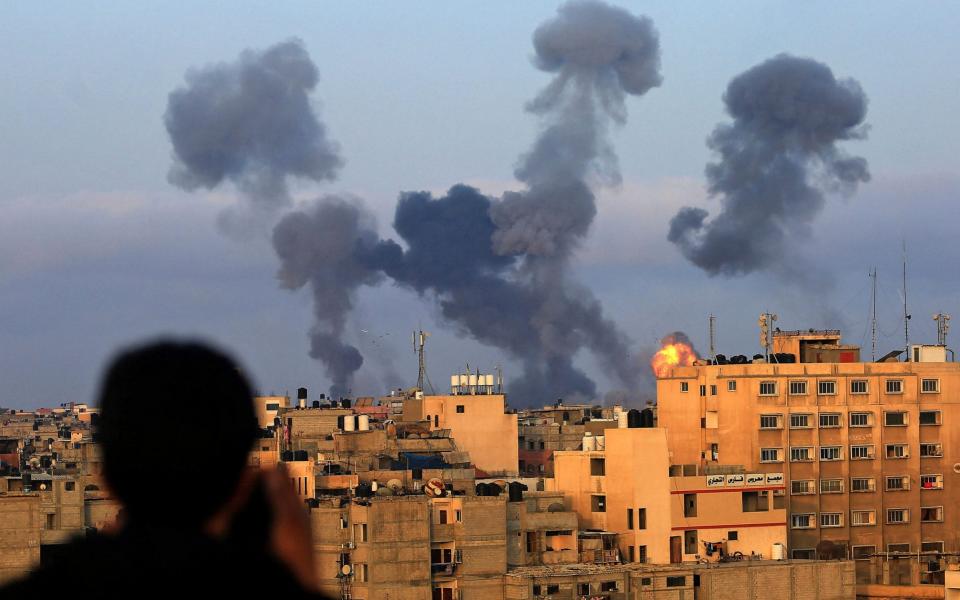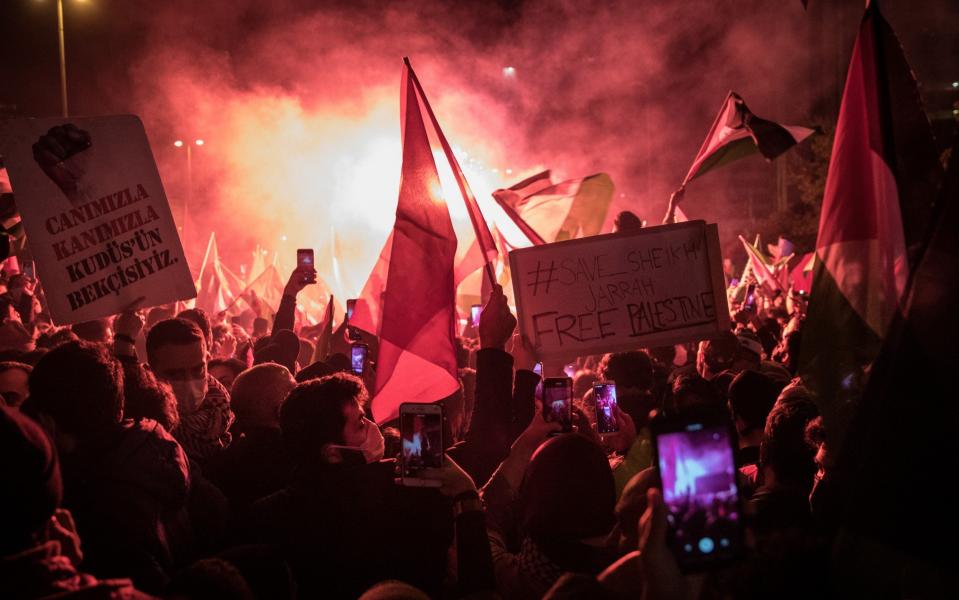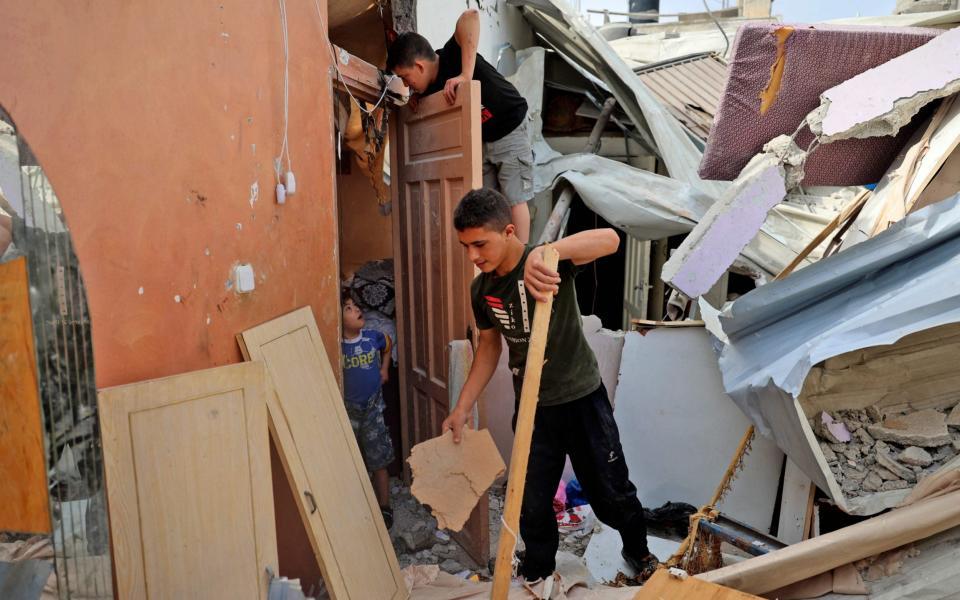The next few days will be crucial in deciding where the violence in Gaza and Jerusalem will lead

The conflict between Israel and the Palestinians is approaching a critical juncture as mass protests sweep across Jerusalem, Israeli forces carry out airstrikes in Gaza and waves of rockets continue to rain down on Israeli towns near the southern border.
On Monday night, the Israeli military launched Operation Guardian of the Walls, a major offensive which as of Monday morning has already killed 15 Hamas and Islamic Jihad operatives.
There are also reports of civilian casualties, including nine children according to Palestinian officials.
The operation was in response to a rocket attack by Hamas on Jerusalem, which caused no deaths or serious injuries but was regarded as a major provocation by Israel.
Meanwhile, clashes at the ancient al-Aqsa mosque in the Old City, as well as in Damascus Gate and the neighbourhood of Sheikh Jarrah, have wounded hundreds of Palestinians and two dozen Israeli police officers.

It was those clashes, Hamas said on Monday, that prompted its first rocket assault on Jerusalem since 2014.
The surge in violence will inevitably lead to speculation about a fresh war in Gaza, following the 2014 conflict that claimed the lives of 2,200 Palestinians and 73 Israelis.
There will also be talk a potential third intifada - a Palestinian uprising - against the Jewish state, as was the case in 1987 and in 2000.
For now it is difficult to predict where this extremely tense situation will lead, but the next few days will be critical.
On the Gaza front, the Israeli military is set to continue striking Hamas targets, along with other Palestinian jihadist groups, for at least another day. Hamas has also threatened to launch more intense strikes against Israeli towns and cities unless Israel withdraws all of its forces from al-Aqsa mosque.
If Hamas were to launch another rocket attack on Jerusalem, or on Tel Aviv, then things could likely escalate to a full-blown conflict.
However, over the past 24 hours - excluding that Monday evening rocket launch on Jerusalem - Hamas has focused its fire on Israeli towns near the Gaza Strip, such as Ashkelon and Sderot.
While those rocket launches are deeply distressing for the Israelis who live there, and have led to some injuries, such attacks are not uncommon.
On the protest front, East Jerusalem has seen some of its worst violence since 2017 and there is still potential for yet more bloodshed, with similar demonstrations breaking out in Haifa and the Arab town of Umm al-Fahm.
Palestinians, and many Muslims across the world, were outraged by recent video footage of Israeli police hurling stun grenades inside the al-Aqsa mosque, the third holiest site in Islam.

But one significant factor in these protests is timing: the month of Ramadan is approaching its end, and during this period there is often a severe increase in tensions between the Palestinians and Israel.
Ramadan is due to end on Thursday evening, and if mass protests do not continue beyond that date then Jerusalem may return to relative calm.
The other key factor in the protests is an Israeli plan to evict around a dozen Palestinian families from their neighbourhood of Sheikh Jarrah, and replace them with settlers.
The Palestinians say this is a blatant attempt to clear them from the area so it can be turned into a Jewish neighbourhood, expanding Israel's presence in the East Jerusalem - which is claimed by the Palestinians as their capital.

Israel refutes this and says the evictions are part of a "real-estate dispute between private parties."
A court hearing on the evictions process that was due to be held on Monday was abruptly cancelled, in an apparent attempt by Israel to ease tensions in the neighbourhood.
However, the hearing has only been postponed and when the case continues within the next 30 days, the situation is likely to escalate once again.
In other words, and this will come as no surprise to those following the conflict, any attempts at de-escalation may simply delay rather than avoid further outbreaks of violence.

